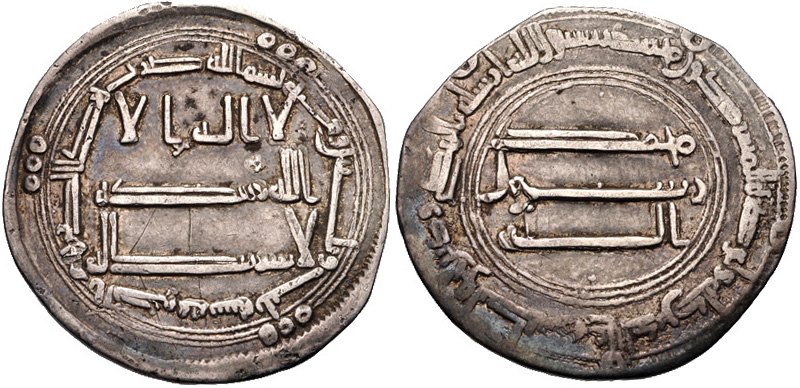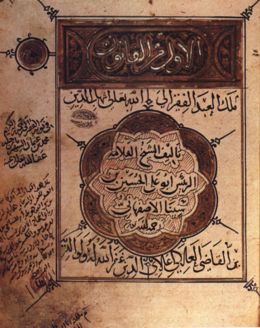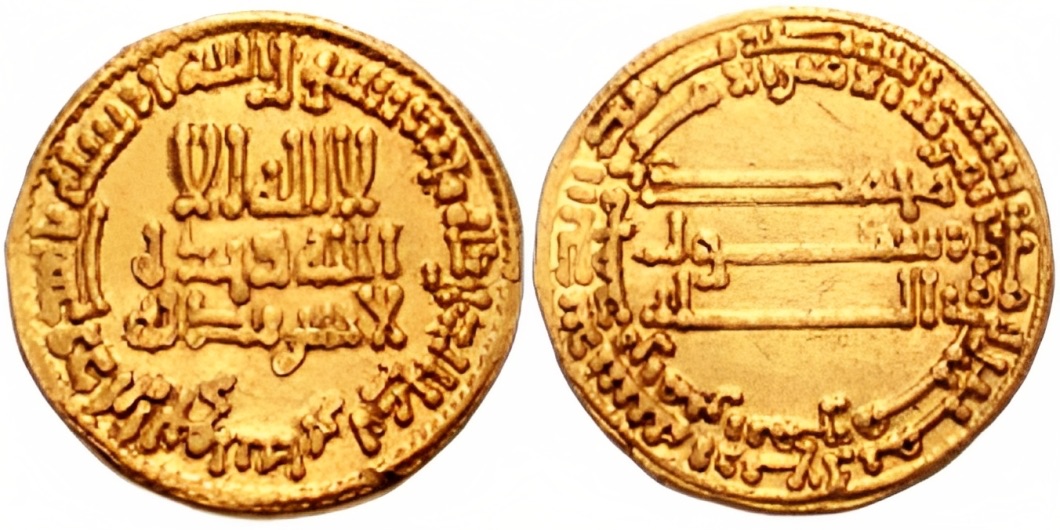|
Al-Kisa'i
Al-Kisā’ī () Abū al-Ḥasan ‘Alī ibn Ḥamzah ibn ‘Abd Allāh ibn ‘Uthman (), called Bahman ibn Fīrūz (), surnamed Abū ‘Abd Allāh (), and Abū al-Ḥasan ‘Alī ibn Hamzah of al-Kūfah ( d. ca. 804 or 812) was preceptor to the sons of caliph Hārūn al-Rashīd and one of the ‘Seven Readers’ (seven canonical Qira'at) or ‘authorized’ Qur’ānic reader.Muhammad Ghoniem and MSM SaifullahThe Ten Readers & Their Transmitters (c) Islamic Awareness. Updated January 8, 2002; accessed April 11, 2016. He founded the Kufi school of Arabic grammar, the rival philology school to the Basri school founded by Sibawayh. Life A Persian native of al-Kūfah, he learned grammar from al-Ru’āsī and a group of other scholars. It is said that al-Kisā’ī took this moniker from the particular kind of mantle he wore called a kisā’. Al-Kisā’ī entered the court of the Abbāsid caliph Hārūn al-Rashīd at Baghdād as tutor to the two princes, al-Ma’mūn a ... [...More Info...] [...Related Items...] OR: [Wikipedia] [Google] [Baidu] |
Sibawayh
Sibawayh ( ar, سِيبَوَيْهِ ' or ; fa, سِیبُویه ' ; c. 760–796), whose full name is Abu Bishr Amr ibn Uthman ibn Qanbar al-Basri (, '), was a Persian leading grammarian of Basra and author of the earliest book on Arabic grammar. His famous unnamed work, referred to as ''Al-Kitāb'', or "The Book", is a five-volume seminal discussion of the Arabic language. Ibn Qutaybah, the earliest extant source, in his biographical entry under ''Sibawayh'' simply wrote: He is Amr ibn Uthman, and he was mainly a grammarian. He arrived in Baghdad, fell out with the local grammarians, was humiliated and went back to some town in Persia, and died there while still a young man. The tenth-century biographers Ibn al-Nadim and Abu Bakr al-Zubaydi, and in the 13th-century Ibn Khallikan, attribute Sibawayh with contributions to the science of the Arabic language and linguistics that were unsurpassed by those of earlier and later times. He has been called the greatest of all ... [...More Info...] [...Related Items...] OR: [Wikipedia] [Google] [Baidu] |
Harun Al-Rashid
Abu Ja'far Harun ibn Muhammad al-Mahdi ( ar , أبو جعفر هارون ابن محمد المهدي) or Harun ibn al-Mahdi (; or 766 – 24 March 809), famously known as Harun al-Rashid ( ar, هَارُون الرَشِيد, translit=Hārūn al-Rashīd) was the fifth Abbasid caliph of the Abbasid Caliphate, reigning from September 786 until his death. His reign is traditionally regarded to be the beginning of the Islamic Golden Age. His epithet "al-Rashid" translates to "the Orthodox", "the Just", "the Upright", or "the Rightly-Guided". Harun established the legendary library Bayt al-Hikma ("House of Wisdom") in Baghdad in present-day Iraq, and during his rule Baghdad began to flourish as a world center of knowledge, culture and trade. During his rule, the family of Barmakids, which played a deciding role in establishing the Abbasid Caliphate, declined gradually. In 796, he moved his court and government to Raqqa in present-day Syria. A Frankish mission came to offer ... [...More Info...] [...Related Items...] OR: [Wikipedia] [Google] [Baidu] |
Al-Ma'mun
Abu al-Abbas Abdallah ibn Harun al-Rashid ( ar, أبو العباس عبد الله بن هارون الرشيد, Abū al-ʿAbbās ʿAbd Allāh ibn Hārūn ar-Rashīd; 14 September 786 – 9 August 833), better known by his regnal name Al-Ma'mun ( ar, المأمون, al-Maʾmūn), was the seventh Abbasid caliph, who reigned from 813 until his death in 833. He succeeded his half-brother al-Amin after a civil war, during which the cohesion of the Abbasid Caliphate was weakened by rebellions and the rise of local strongmen; much of his domestic reign was consumed in pacification campaigns. Well educated and with a considerable interest in scholarship, al-Ma'mun promoted the Translation Movement, the flowering of learning and the sciences in Baghdad, and the publishing of al-Khwarizmi's book now known as "Algebra". He is also known for supporting the doctrine of Mu'tazilism and for imprisoning Imam Ahmad ibn Hanbal, the rise of religious persecution ('' mihna''), and for the r ... [...More Info...] [...Related Items...] OR: [Wikipedia] [Google] [Baidu] |
Kufa
Kufa ( ar, الْكُوفَة ), also spelled Kufah, is a city in Iraq, about south of Baghdad, and northeast of Najaf. It is located on the banks of the Euphrates River. The estimated population in 2003 was 110,000. Currently, Kufa and Najaf are joined into a single urban area that is mostly commonly known to the outside world as 'Najaf'. Along with Samarra, Karbala, Kadhimiya and Najaf, Kufa is one of five Iraqi cities that are of great importance to Shi'ite Muslims. The city was founded in 638 CE (17 Hijrah) during the reign of the second Rashidun Caliph, Umar ibn Al-Khattab, and it was the final capital of the last Rashidun Caliph, Ali ibn Abi Talib. Kufa was also the founding capital of the Abbasid Caliphate. During the Islamic Golden Age it was home to the grammarians of Kufa. Kufic script is named for the city. History Establishment during Umar's era After the Arab victory against the Byzantine Empire at Battle of Yarmouk in 636, Kufa was founded and give ... [...More Info...] [...Related Items...] OR: [Wikipedia] [Google] [Baidu] |
Muhammad Al-Shaybani
Abū ʿAbd Allāh Muḥammad ibn al-Ḥasan ibn Farqad ash-Shaybānī ( ar, أبو عبد الله محمد بن الحسن بن فرقد الشيباني; 749/50 – 805), the father of Muslim international law, was an Arab jurist and a disciple of Abu Hanifa (later being the eponym of the Hanafi school of Islamic jurisprudence), Malik ibn Anas and Abu Yusuf."al- Shaybānī, Abū ʿAbd Allāh Muḥammad b. al-Ḥasan b. Farḳad ." ''Encyclopaedia of Islam'' Early years Muḥammad b. al-Ḥasan was born in Wāsiṭ, Iraq, in 750; soon, however, he moved to Kufa, the home town of Abū Ḥanīfa, and grew there. Though he was born to a soldier, he was much more interested in pursuing an intellectual career than a military one. Shaybani began studying in Kufa as a pupil of Abu Hanifa. When al-Shaybani was 18 (in 767), however, Abu Hanifa died after having taught him for only two years. Shaybani then began training with Abū Yūsuf, his senior, and the leading disciple of Abu ... [...More Info...] [...Related Items...] OR: [Wikipedia] [Google] [Baidu] |
Abū Ḥanīfah
Nuʿmān ibn Thābit ibn Zūṭā ibn Marzubān ( ar, نعمان بن ثابت بن زوطا بن مرزبان; –767), commonly known by his '' kunya'' Abū Ḥanīfa ( ar, أبو حنيفة), or reverently as Imam Abū Ḥanīfa by Sunni Muslims, was a Persian Sunni Muslim theologian and juristPakatchi, Ahmad and Umar, Suheyl, "Abū Ḥanīfa", in: ''Encyclopaedia Islamica'', Editors-in-Chief: Wilferd Madelung and, Farhad Daftary. who became the eponymous founder of the Hanafi school of Sunni jurisprudence, which has remained the most widely practiced law school in the Sunni tradition, predominates in Central Asia, Afghanistan, Iran (until the 16th century), Balkans, Russia, Chechnya, Pakistan, Bangladesh, Muslims in India, Turkey, and some parts of the Arab world. Some followers call him ''al-Imām al-Aʿẓam'' ("The Greatest Imam") and ''Sirāj al-Aʾimma'' ("The Lamp of the Imams") in Sunni Islam. Born to a Muslim family in Kufa, Abu Hanifa is known to have travelled ... [...More Info...] [...Related Items...] OR: [Wikipedia] [Google] [Baidu] |
Ibn Al-Nadim
Abū al-Faraj Muḥammad ibn Isḥāq al-Nadīm ( ar, ابو الفرج محمد بن إسحاق النديم), also ibn Abī Ya'qūb Isḥāq ibn Muḥammad ibn Isḥāq al-Warrāq, and commonly known by the '' nasab'' (patronymic) Ibn al-Nadīm ( ar, ابن النديم; died 17 September 995 or 998) was an Arab Muslim bibliographer and biographer of Baghdad who compiled the encyclopedia ''Kitāb al-Fihrist'' (''The Book Catalogue''). Biography Much known of al-Nadim is deduced from his epithets. 'Al-Nadim' (), 'the Court Companion' and 'al-Warrāq () 'the copyist of manuscripts'. Probably born in Baghdad ca. 320/932 he died there on Wednesday, 20th of Shaʿban A.H. 385. He was a Persian or perhaps an Arab. From age six, he may have attended a ''madrasa'' and received comprehensive education in Islamic studies, history, geography, comparative religion, the sciences, grammar, rhetoric and Qurʾanic commentary. Ibrahim al-Abyari, author of ''Turāth al-Insaniyah'' says al-Nad ... [...More Info...] [...Related Items...] OR: [Wikipedia] [Google] [Baidu] |
Al-Amin
Abu Musa Muhammad ibn Harun al-Rashid ( ar, أبو موسى محمد بن هارون الرشيد, Abū Mūsā Muḥammad ibn Hārūn al-Rashīd; April 787 – 24/25 September 813), better known by his laqab of Al-Amin ( ar, الأمين, al-Amīn), was the sixth Arab Abbasid caliph from 809 to 813. Al-Amin succeeded his father, Harun al-Rashid, in 809 and ruled until he was deposed and killed in 813, during the civil war by his half-brother, al-Ma'mun. Early life and the issue of succession Muhammad, the future al-Amin, was born in April 787 to the Abbasid caliph Harun al-Rashid () and Zubayda, herself descended from the second Abbasid caliph, al-Mansur (). Muhammad had an elder half-brother, Abdallah, the future al-Ma'mun (), who had been born in September 786. However, Abdallah's mother was a Persian slave concubine, and his pure Abbasid lineage gave Muhammad seniority over his half-brother. Indeed, he was the only Abbasid caliph to claim such descent. Already in 792, Har ... [...More Info...] [...Related Items...] OR: [Wikipedia] [Google] [Baidu] |
Abbasid Caliphate
The Abbasid Caliphate ( or ; ar, الْخِلَافَةُ الْعَبَّاسِيَّة, ') was the third caliphate to succeed the Islamic prophet Muhammad. It was founded by a dynasty descended from Muhammad's uncle, Abbas ibn Abdul-Muttalib (566–653 CE), from whom the dynasty takes its name. They ruled as caliphs for most of the caliphate from their capital in Baghdad in modern-day Iraq, after having overthrown the Umayyad Caliphate in the Abbasid Revolution of 750 CE (132 AH). The Abbasid Caliphate first centered its government in Kufa, modern-day Iraq, but in 762 the caliph Al-Mansur founded the city of Baghdad, near the ancient Babylonian capital city of Babylon. Baghdad became the center of science, culture and invention in what became known as the Golden Age of Islam. This, in addition to housing several key academic institutions, including the House of Wisdom, as well as a multiethnic and multi-religious environment, garnered it a worldwide reputa ... [...More Info...] [...Related Items...] OR: [Wikipedia] [Google] [Baidu] |
Persian People
The Persians are an Iranian ethnic group who comprise over half of the population of Iran. They share a common cultural system and are native speakers of the Persian language as well as of the languages that are closely related to Persian. The ancient Persians were originally an ancient Iranian people who had migrated to the region of Persis (corresponding to the modern-day Iranian province of Fars) by the 9th century BCE. Together with their compatriot allies, they established and ruled some of the world's most powerful empires that are well-recognized for their massive cultural, political, and social influence, which covered much of the territory and population of the ancient world.. Throughout history, the Persian people have contributed greatly to art and science. Persian literature is one of the world's most prominent literary traditions. In contemporary terminology, people from Afghanistan, Tajikistan, and Uzbekistan who natively speak the Persian language are ... [...More Info...] [...Related Items...] OR: [Wikipedia] [Google] [Baidu] |







.jpg)
